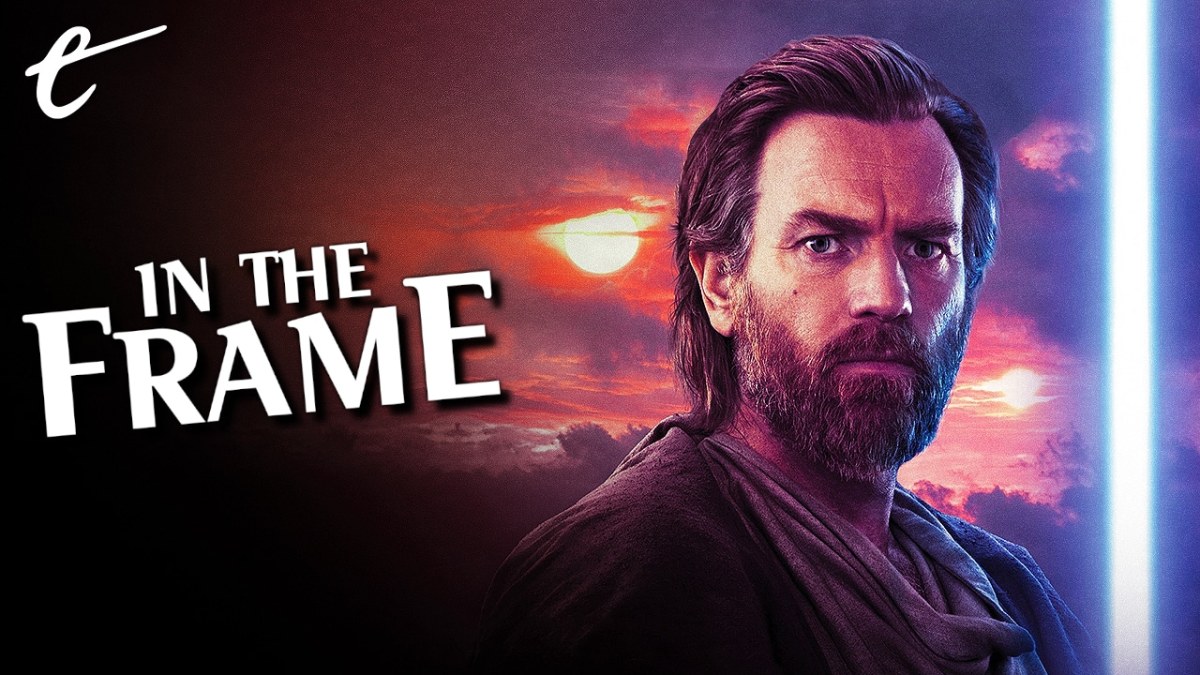There’s been a lot of coverage this past week about the launch of Obi-Wan Kenobi, the new Star Wars streaming series that will focus on the eponymous character (played by Ewan McGregor) in the gap between Revenge of the Sith and the original Star Wars.
Disney released a teaser trailer for Obi-Wan Kenobi last Wednesday. More cynical observers might note that, as with Friday’s teaser for Moon Knight, the release of the long-anticipated trailer was conveniently timed to shift public attention away from ongoing Disney controversies. These concern Disney’s financial support of politicians backing Florida’s “Don’t Say Gay” bill, the equivocation of senior management on the point, and the reports of internal censorship on same-sex attraction.
The teaser was promising, particularly given the constraints within which Obi-Wan Kenobi must operate. Following The Book of Boba Fett, it is another Star Wars spin-off built around an established character and returning actor from the film franchise, which will by necessity be largely set on the desert planet of Tatooine. It will even feature a supporting role for Luke Skywalker, this time played by an as-yet-unidentified young actor. It is all very familiar.
The teaser offered some cause for hope. While scoring a trailer to John Williams’ “Duel of the Fates” does a lot of heavy lifting, the promo teased an array of new and familiar characters, a high-stakes central premise, and the implication that at least some of the show would take place beyond the familiar desert sands of Tatooine. The teaser marked the start of the promotion cycle for Obi-Wan Kenobi, followed by an Entertainment Weekly cover story on Friday, complete with new images.
The cover story revealed new details about the show’s production, most notably an admission by producer Kathleen Kennedy that Lucasfilm had reportedly binned the first round of scripts for the series. This revelation fits with reports from production in January 2020, which saw a major delay reportedly tied to significant rewrites. Ewan McGregor insisted that this wouldn’t affect the show’s release date, and the release date has been set as May 25, the 45th anniversary of Star Wars.

Obviously, none of this is proof that Obi-Wan Kenobi will be a spectacular misfire. After all, films like Francis Ford Coppola’s Apocalypse Now and George Miller’s Mad Max: Fury Road had troubled production cycles that led to masterpieces. However, there is more cause for concern where studio meddling over brand management upends production, as with Joss Whedon’s Justice League or with Ron Howard’s Solo: A Star Wars Story.
It is particularly troubling how Obi-Wan Kenobi production explicitly echoes what happened on Solo: A Star Wars Story, the moment that seemed to derail Disney’s management of the larger Star Wars brand. Disney hired two talented writers and directors with a proven track record, Phil Lord and Christopher Miller, only to remove them from the project when the tone of their work proved too comedic for what Disney wanted of the brand.
Disney had the opposite problem with Obi-Wan Kenobi. According to Kennedy, Disney was “looking, ultimately, to make a hopeful, uplifting story.” This clashed with the vision of original writer Hossein Amini, the Academy Award-nominated screenwriter of The Wings of the Dove and Drive. Amini was replaced by Joby Harold, whose credits include the screenplays for King Arthur: Legend of the Sword and Army of the Dead, along with the story of an upcoming Transformers film.
It’s worth noting how important authorship is to Obi-Wan Kenobi. This series will be the first live-action Star Wars streaming series not to be overseen by Jon Favreau. Favreau’s tenure has largely been defined by a strange warping of The Mandalorian and The Book of Boba Fett into a shapeless and formless mess that might best be described as “content soup.” If Disney is to keep churning out Star Wars content, there should at least be some difference between the shows.

Along those lines, it is strange to imply that Obi-Wan Kenobi was too dark or too bleak. After all, the series takes place in the aftermath of Revenge of the Sith, easily the best reviewed and probably the best liked of the prequel trilogy because it embraced the bleakness of its premise. Revenge of the Sith saw the extermination of the Jedi Order, Anakin Skywalker (Hayden Christensen) become a child murderer, and Obi-Wan Kenobi (Ewan McGregor) leave his best friend for dead after that betrayal.
Disney has already explored this lacuna in the mythos. Their second theatrical release after buying Lucasfilm was Rogue One, a film so committed to its darkness and bleakness that it murdered its entire primary cast. Rogue One opened to strong reviews and an impressive box office, becoming the highest-grossing movie of 2016 at the domestic box office. The movie had both an undeniable contemporary resonance and new things to say about Star Wars.
The biggest problems with Rogue One – and the decisions most indicative of the direction in which Disney would steer the Star Wars brand – came in the decision to reshoot and rework much of the movie’s final act, wresting control away from credited director Gareth Edwards. Those reshoots included a fan service-heavy sequence with Darth Vader (James Earl Jones), prefiguring similar uses of Luke Skywalker (Mark Hamill) in both The Mandalorian and The Book of Boba Fett.
The setting and premise of Obi-Wan Kenobi require a certain level of bleakness. The galaxy has descended into fascism. It is an ongoing process, as demonstrated by the dissolution of the senate early in the original Star Wars. Kenobi’s friends are either dead or in exile. His former student is hunting and murdering survivors. Kenobi has chosen to dedicate his life to quietly watching over Luke Skywalker from a distance, knowing the boy’s mother is dead and his father is a monster.

Revenge of the Sith ends in a dark place. The original Star Wars begins in a dark place. George Lucas had originally conceived of the film as his commentary on the Vietnam War, and much of what would become Star Wars originated in Lucas’ plans to adapt Apocalypse Now. It is understandable that Disney might want to make “a hopeful, uplifting story,” but it probably doesn’t make sense to use this character and setting.
After all, the Star Wars universe is functionally infinite. The studio could easily tell another story in another time with another character, even if that meant sacrificing the easy nostalgia of having McGregor reprise his role from the prequel films. This recalls the retooling of the central character in The Book of Boba Fett, turning a charmingly inept bounty hunter who worked for a drug-running slug creature into an advocate of unionization to make him more palatable to audience members.
This perhaps gets at a broader debate in contemporary pop culture. Recent years have seen an embrace of a philosophy perhaps best described as “poptimism,” arguing that historically critics have tended to unfairly dismiss works of art that embrace fun and excitement. This dismissal is rooted in the fallacy that something darker and edgier must be better, often framed through the argument that it is more “mature” simply because it is more cynical or violent.
“Poptimism” was often framed in musical terms. Specifically, it applied to the debate over whether pop or rock music was inherently superior, with many arguing that pop music was rarely considered as credible as rock. It was a valid debate, tapping into any number of long-standing assumptions (often gendered and racial) about the art that larger culture takes seriously. However, it’s possible to see the debate manifest in other cultural spheres, related to media like films and television.

It goes without saying that “a hopeful, uplifting story” is as valid as “a dark, bleak story.” The Lego Batman Movie is just as valid a take on the Caped Crusader as The Batman, and it is great that both can coexist. The problem lies when one approach is given precedence over the other, when the argument ceases to be that “a hopeful, uplifting story” is as valid as “a dark, bleak story,” and instead that the only valid story is “a hopeful, uplifting story” and that anything else is invalid.
There are plenty of valid reasons for Obi-Wan Kenobi to be a dark and bleak take on Star Wars. After all, Star Wars has always reflected the world around it, and the world is a dark and unsettling place. Democracy is under attack. War is raging on the European continent. The social fabric is fraying. Confronting those sorts of fears through pop art could be cathartic, in the same way that watching a good horror movie works through underlying discomfort.
Disney’s most recent Star Wars projects have embraced the lifeless affectation of “a hopeful, uplifting story.” With the possible exception of designated baddie Cad Bane (Corey Burton), nobody that the audience cared about died in The Book of Boba Fett, a curiously bloodless show about a criminal empire. Maybe Disney should let these stories be what the storytellers feel they need to be, instead of contorting them to fit a shape that the company wants them to be.






Published: Mar 14, 2022 11:00 am